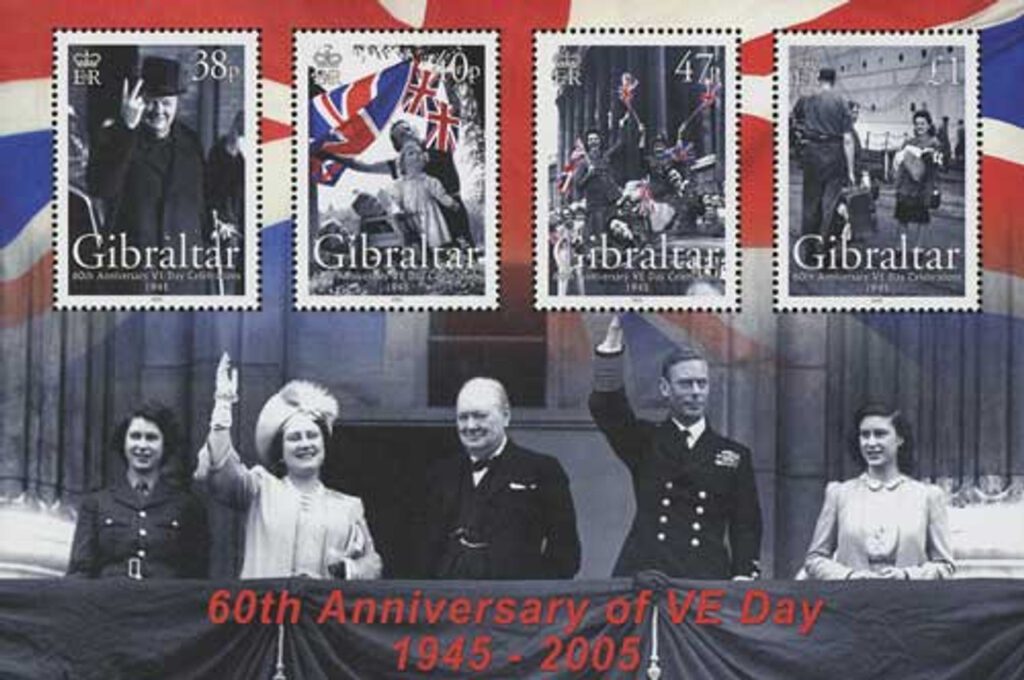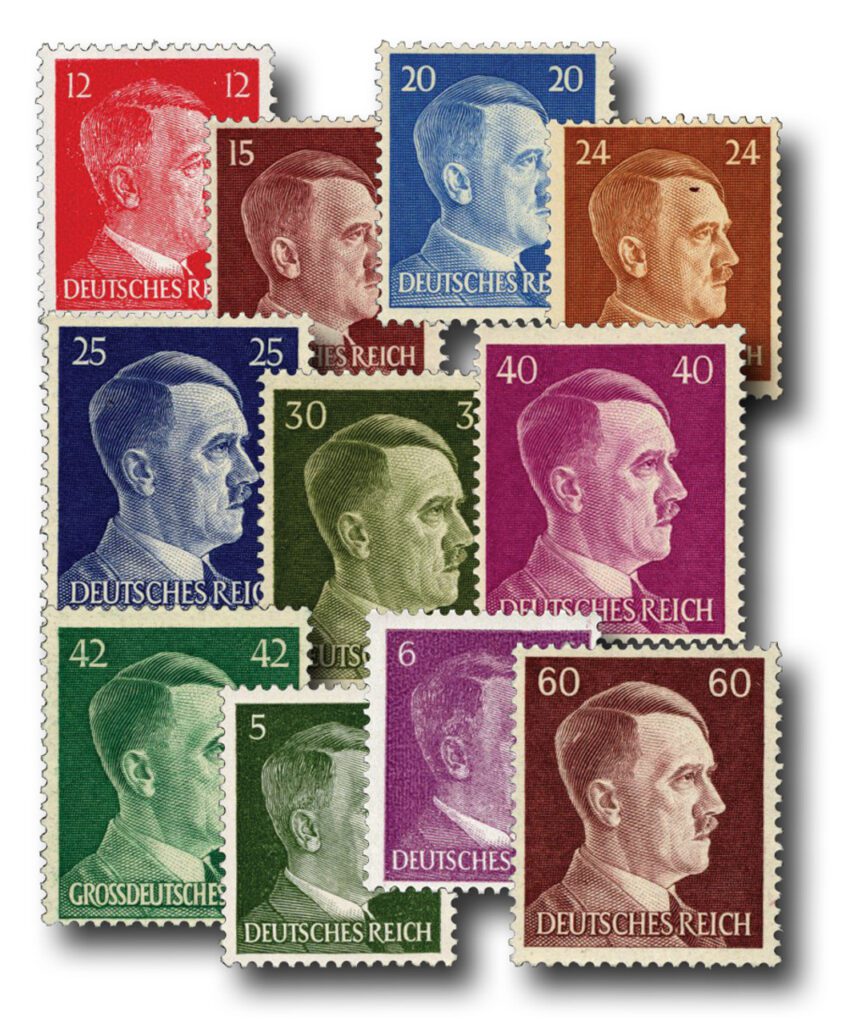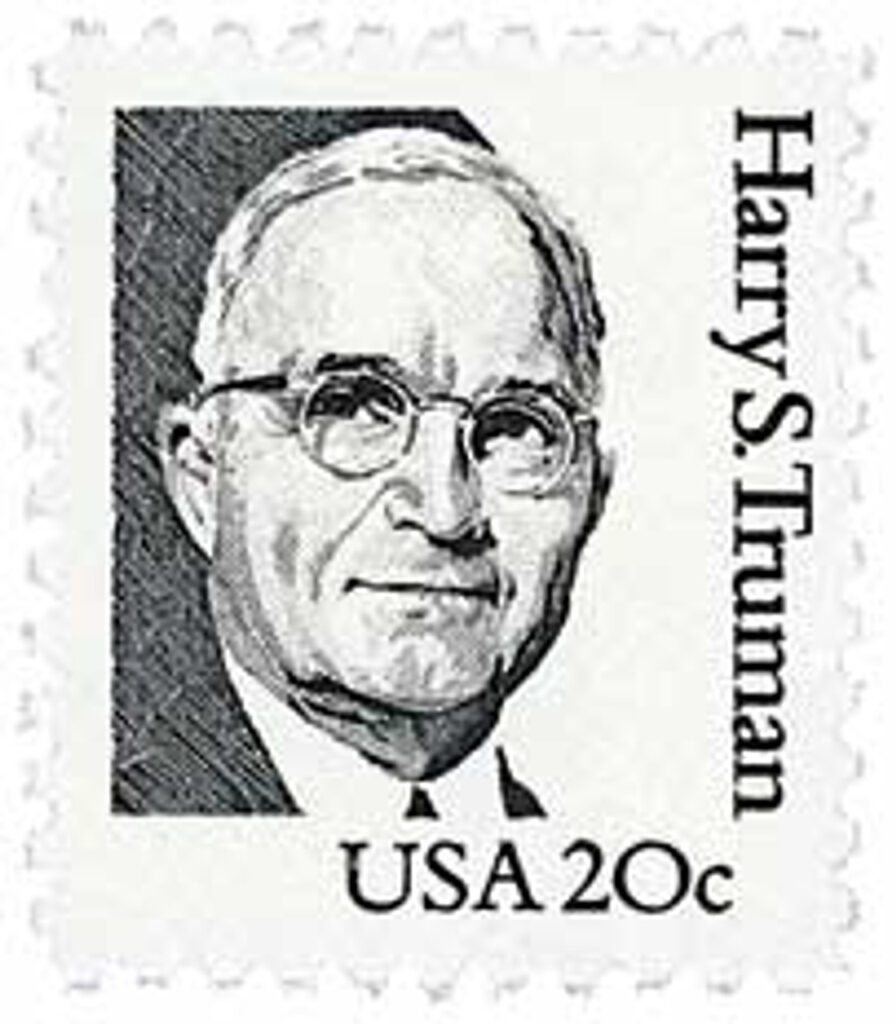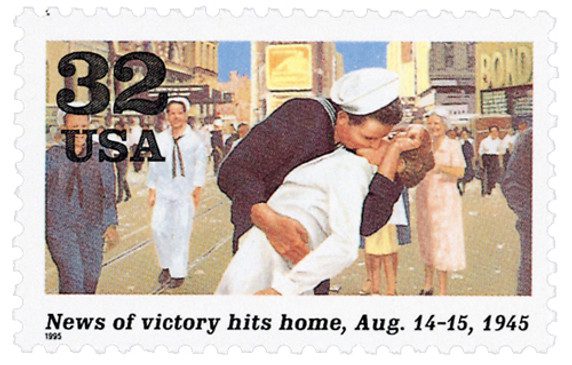
On May 8, 1945, Americans celebrated Germany’s defeat with the first Victory in Europe Day.
The war in Europe came down to Berlin. Hidden from harm in his bunker under Berlin, Adolph Hitler continued ordering his troops to fight, somehow believing the Third Reich could defeat its enemies. But, when Soviet forces smashed their way into Berlin on April 25, 1945, and with U.S. forces waiting at the Elbe River, reality overcame Hitler’s visions.

On April 30th, Hitler and his wife, Eva Braun, decided to commit suicide to “escape the shame of overthrow or capitulation.” Two days later, portions of the German forces began asking for a cease-fire. The little resistance left in Germany was crumbling fast.
Germany’s actual surrender came at 2:41 A.M. on May 7th. General Eisenhower refused to attend the signing in person. With the words, “…the German people and armed forces are, for better or worse, delivered into the victor’s hands,” German Field Marshal Alfred Jodl signed the surrender. The representatives were then ushered into Eisenhower’s office, where he confirmed that they understood the unconditional surrender. The ceremony was repeated for the Soviets the next day – history has recorded May 8th as V-E Day or Victory in Europe Day ever since.
The people of Japan heard the voice of their emperor for the first time ever when he announced in a radio broadcast that the war was over. The Japanese were devastated – most responded by openly weeping, while America’s response to the news was one of pure joy.
May 8, 1945, was a day filled with celebrations in Allied countries. Residents of the United Kingdom spilled into the streets when they heard the news. The King, Queen, and Prime Minister stood on the balcony of Buckingham Palace to enjoy the cheering crowds. Princesses Elizabeth and Margaret mingled with Londoners, keeping their identity secret.

In America, President Truman announced the end of the war in Europe, “This is a solemn but glorious hour. General Eisenhower informs me that the forces of Germany have surrendered to the United Nations. The flags of freedom fly all over Europe.”
America was still mourning the loss of Franklin Roosevelt less than a month earlier, with the flags still flying at half mast amidst the celebrations. President Truman dedicated the victory to FDR and said he wished “that Franklin D. Roosevelt had lived to witness this day.” As in Europe, Americans everywhere joined with their neighbors in celebration. In the Soviet Union, it was already May 9 Moscow Time when the instrument of surrender was signed.
V-E Day celebrations in America had been stifled by the sobering realization that the war in the Pacific was still to be fought. Japan surrendered on August 14th, but the official ceremony was held September 2nd aboard the U.S. battleship Missouri anchored in Tokyo Bay. Two Japanese officials, as well as representatives from the U.S., Great Britain, China, Russia, the Netherlands, New Zealand, Canada, France, and Australia signed the surrender document. September 2nd has been celebrated as V-J Day or Victory over Japan Day ever since.

With the Japanese surrender, the war was truly over. Whistles blew, church bells rang, crowds filled the streets, employees left work early, and strangers embraced as the nation erupted in celebration. Excitement subsided as serious speculation about the future began. People everywhere wanted to be sure the world would never suffer through such a calamity again. This hope was expressed on October 24, 1945, when the United Nations was signed into existence.
Click here to see photos from the New York City V-E Day Celebration.
Discover what else happened on This Day in History.

Wow very interesting article about the end of WW2.
Wondering off May 8th a bit.
On May 8, 1945, I was on board a cargo ship loaded with tanks and trucks, part of a convoy of ships that had just completed a trip across the /Atlantic and was in the English Channel when we heard the news that Germany had surrendered. We put our ship into Southampton, and I was in a pub there when we listened to the radio speech of Churchill that the war was over. Heady times. But I was given orders to transfer to a Navy ship in the Pacific, and in August, I was on a transport ship to Eniwetok atoll in the Marshall Islands when we heard that Japan had surrendered. The war was over!
Growing up in the fifties, almost everyone’s father in my neighborhood had served in W.W.11. Hearing their experiences told how epic a struggle it was. Only after reading historical accounts from various theatres did I realize just how much my ordinary neighbors had taken part in historic battles. Without doubt, the greatest generation. I miss their passing.
Winston Churchill Was one of the main winning factors of the war and you do not mention him in the article ??? FDR was to sick to have run for a third term and did a VERY poor at Yelta conference. Thus starting the forty year cold war.
Just to set the record straight… FDR was elected to four terms as president.
i liek old stampe in coin i ceate from 1955 i haven alt of stame in coin davern cattery
I was not that old when the war ended in 1945, but I do remember my parents and my brother and I going from Huntington, Indiana to Battle Creek, Michigan and picking up my uncle Bill that year when he was discharged from the Army. I remember it was a joyous occasion for everybody.
We will always remember the greatest generation in American history. They deserve our thanks and eternal rest in the beyond! I still thank the many participants in that war who are now in their late eighties and nineties.
Brings back memories of my dad in WWII. Truly, the greatest generation. I appreciate your good and informative work, in bringing this history to the stamp collecting world.
This was not a stirring commentary on he VE day. Why was Japan even mentioned in this account of the war ending since they didn’t stop fighting until August? This was NOT up to the standards of your usual accounts AT ALL.
My father J.B.Tare was awarded PARCHMENT COMMISSION on 30th May 1945, for exemplary courage, gallantry in WW II.Your article brought back the old memories and gripping war tales my dad and his many officer friends from Army , told us when we were in school. My tributes to the World War II veterans.
I was only seven when those events occurred but I remember them well. I met the “Kissing Sailor” and have his autograph. I don’t believe the youth of today have the least knowledge of the sacrifice of that generation long ago.
I am curious as to how the Germans surrendered to the United Nations when they did not exist until October 24th, five months and 16 days later.